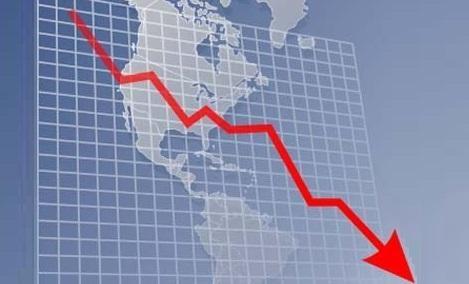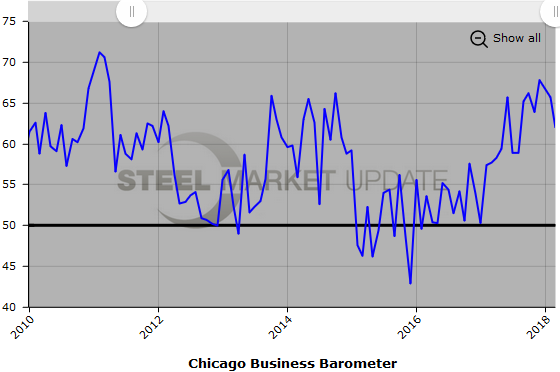Market Data

February 28, 2018
Chicago Business Barometer at Six-Month Low
Written by Sandy Williams
The MNI Chicago Business Barometer fell in February to its lowest level since August 2017. The barometer slipped 3.8 points from January’s reading to 61.9. Compared to a year ago, the index was up 8 percent and was above the 2017 average of 60.8
New orders were at a six-month low and production was at its lowest level since September. Order backlogs and supplier deliveries eased somewhat in February, said MNI.
Inventory building was at its lowest rate since October. After peaking at a three-year high in December, inventories have fallen to early 2017 levels.
Elevated raw material prices receded slightly in February with steel, wood, foam and alloy mentioned as particularly expensive, said MNI. Nearly half of the firms surveyed expect input prices to continue to be a challenge to business operations during the next 12 months, while 6 percent said higher pricing will help, and 44 percent expect little to no impact.
Hiring intentions eased as firms reported a shortage of skilled workers to fill vacancies.
“Disruptive weather conditions this month and large promotions at the back end of last year appear to have weighed on demand and output in February, but despite the barometer’s broad-based decline activity remains upbeat,” said Jamie Satchi, economist at MNI Indicators.
“That said, a large proportion of firms are anxious about the cost of input materials, and warn they could pass on these higher costs to consumers if inflationary pressures do not abate,” he added.
Below is a graph showing the history of the Chicago Business Barometer. You will need to view the graph on our website to use its interactive features, you can do so by clicking here. If you need assistance logging into or navigating the website, please contact our office at 800-432-3475 or info@SteelMarketUpdate.com.








